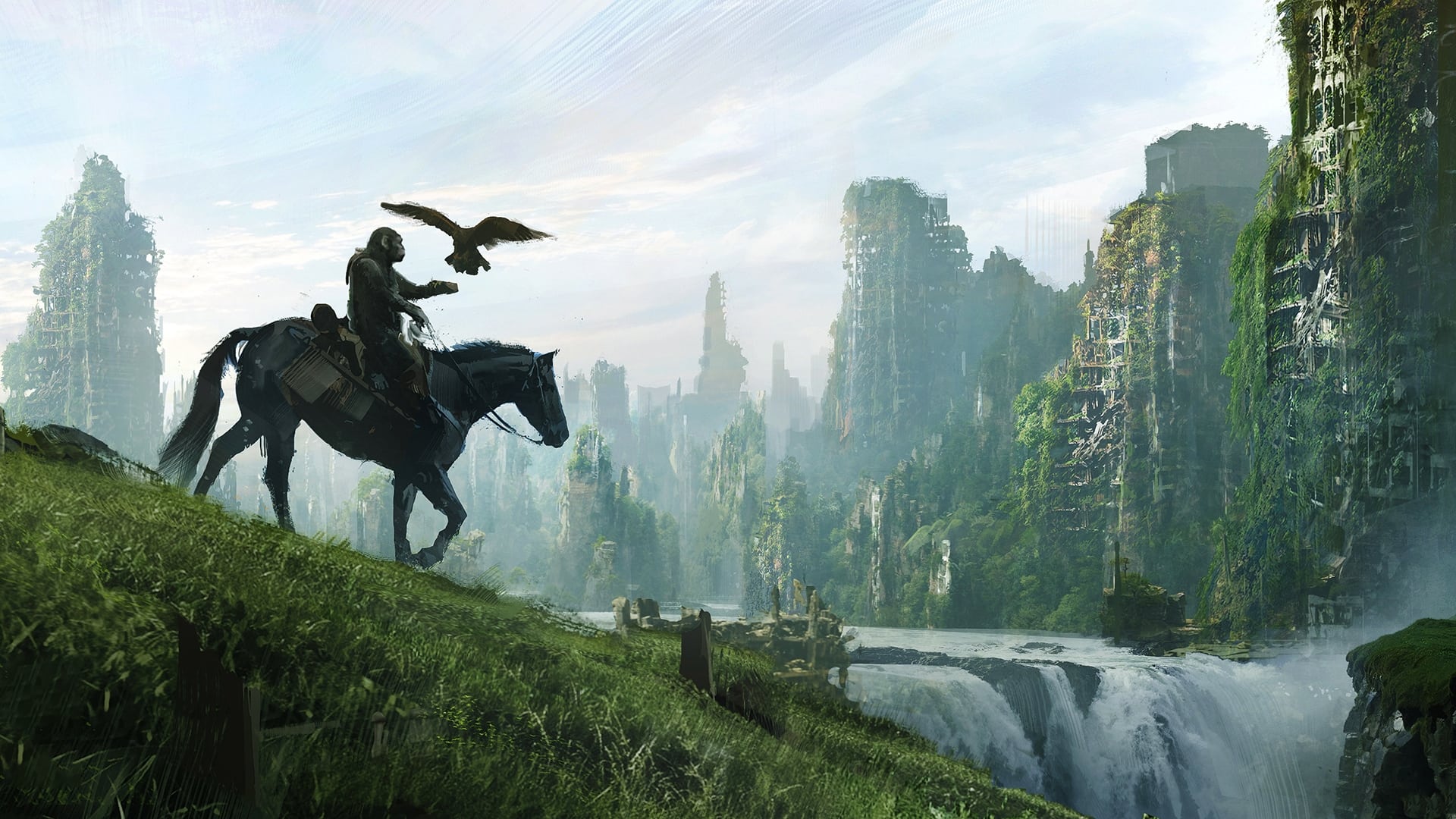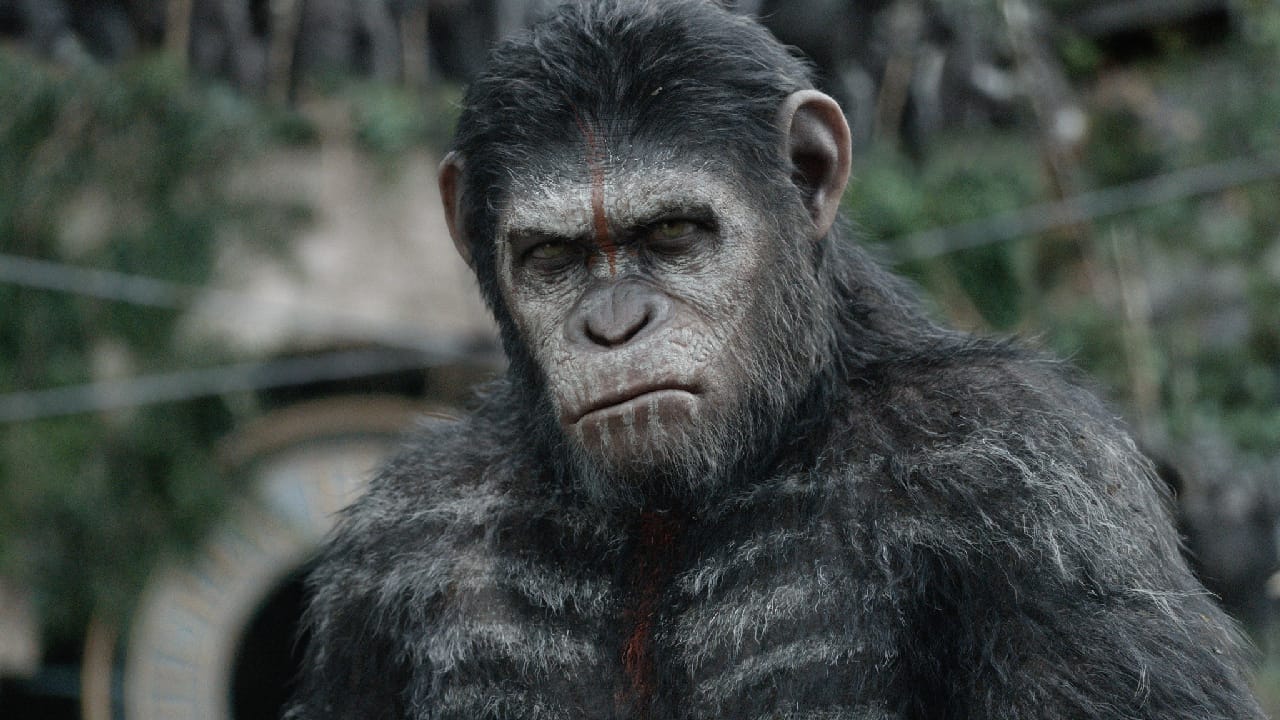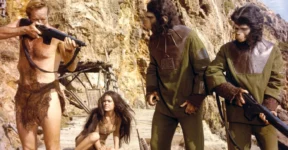As of 2023 and excluding the TV films, there are so far nine movies within the Planet of the Apes universe. The first film came out in 1968, followed by four direct sequels from 1970 to 1973; that was one movie per year. They released a remake in 2001 before the full-blown reboot, comprising three movies, hit the screen in 2011, 2014, and 2017. Here’s how to watch the Planet of the Apes movies in order!

Reboot/Prequels
The three reboot movies are only loosely connected to the original series. However, the timeline does indicate that events in their storyline precede those of the 1968 classic. It is therefore advisable to treat the reboot as prequels despite them having potentially different futures than the original five films already established. To watch Planet of the Apes in order, start with the latest three instalments:
- Rise of the Planet of the Apes (2011): an introduction to Caesar, a male chimpanzee whose intelligence level increases to a great extent through a drug test gone wrong. The movie depicts Caesar as questioning the apes’ place in a world dominated by humans. What he does and the subsequent harsh responses to his actions shall plant the seeds for a lengthy armed conflict between apes and humans.
- Dawn of the Planet of the Apes (2014): Simian Flu has decimated the human population. Meanwhile, the evolved apes under Caesar’s leadership have established a colony in the Muir Woods just outside San Francisco, where they enjoy relative safety from human aggression. A peace talk between the apes and humans goes terribly wrong, and now both parties are ready to engage in an all-out war.
- War for the Planet of the Apes (2017): humans want to obliterate the apes. Caesar has no choice but to return the hostility in kind. He dies after saving the apes but not before they discover a seemingly isolated lush green land to rebuild the society in peace, free from human interference. The third movie of the reboot marks the end of Caesar’s trilogy.
Caesar’s death does not mean the end of the franchise. They initially intended war for the Planet of the Apes as a link to establish a workable connection to the 1968 original, but the cliffhanger ending missed the target by quite a margin. It is safe to say the reboot might need another instalment or two to bring the dots closer to each other.
Original Series
The next films in line are the five instalments of the original series:
- Planet of the Apes (1968): a group of American astronauts, led by George Taylor, find themselves stranded on a strange planet inhabited by an intelligent ape society. Humans are primitive species and are treated as slaves. The shocking ending reveals that the ape-dominated planet is actually the future Earth.
- Beneath the Planet of the Apes (1970): Major John Brent arrives on the same planet to search for the now-missing George Taylor. The film dives deeper into the planet only to find it inhabited by telekinetic humans, whose ancestors survived a nuclear blast a long time ago. It ends with another atomic blast that destroys everything to smithereens.
- Escape From the Planet of the Apes (1971): Three apes (Zira, Cornelius, and Milo) escape the second blast and take a time travel back to 1973 when humans still ruled the Earth. Seen as oddities of nature, the apes have to deal with prejudice and persecution.
- Conquest of the Planet of the Apes (1972): a pandemic has wiped out cats and dogs. Humans turn to apes to fill the roles of pets and slaves. Caesar, the intelligent son of Cornelius and Zira, leads a violent rebellion against humans.
- Battle for the Planet of the Apes (1973): the ape society prevails only to realize that power corrupts whoever is in charge. Humans have been defeated, and the world turns out to be just as chaotic as ever. There is some sort of truce, but everyone knows it won’t last long.
We should note that even the original series alone has a somewhat convoluted timeline. Events in the first film take place in 1972 before jumping forward to 3978. That said, the final sequel hints that the ending happens in the 2600s. Despite the confusion, watching all five films in the suggested order makes perfect sense.
Remake
Tim Burton’s Planet of the Apes is supposed to be an attempt to reboot the series by remaking the original. The film ends up being pretty divisive in terms of storyline and plot continuity. Since it does not belong in either the original or reboot series, watch it whenever you like. Watch the 1968 film first just to compare the two and see how they are different in so many respects.
We think the reboot/prequel movies relived the passion of the original series and set a new thrilling storyline in motion. Not only does the reboot introduce better cosmetics (CGI, motion capture, and such) but it also gives the franchise a breath of fresh air to carry it to the much-anticipated exciting future.
Have you watched any of the Planet of the Apes films? Which one you like best? We’d love to hear from you.
Other things you might want to know:
Planet of the Apes movies release order:
| Classic | |
| 1968 | Planet of the Apes |
| 1970 | Beneath the Planet of the Apes |
| 1971 | Escape from the Planet of the Apes |
| 1972 | Conquest of the Planet of the Apes |
| 1973 | Battle for the Planet of the Apes |
| Remake | |
| 2001 | Planet of the Apes |
| Reboot | |
| 2011 | Rise of the Planet of the Apes |
| 2014 | Dawn of the Planet of the Apes |
| 2017 | War for the Planet of the Apes |
Will there be a new film?
A new film, titled “Kingdom of the Planet of the Apes” is scheduled for release on May 24, 2023. Events in the film are set years after the previous instalment, and the apes are divided into multiple clans. Humans have plunged deeper into a primitive state.
Will the new film connect to the original?
Talks about whether the upcoming film will lead back to the 1968 classic are mere speculations. It does not seem likely that both the studios and filmmakers will rush the story toward an ending soon. One thing is certain: the franchise – the reboot – still has plenty of stories to explore, so wrapping it up in the next film will only make everything look like a rush job instead of a carefully executed project.
Check out other articles by month:







